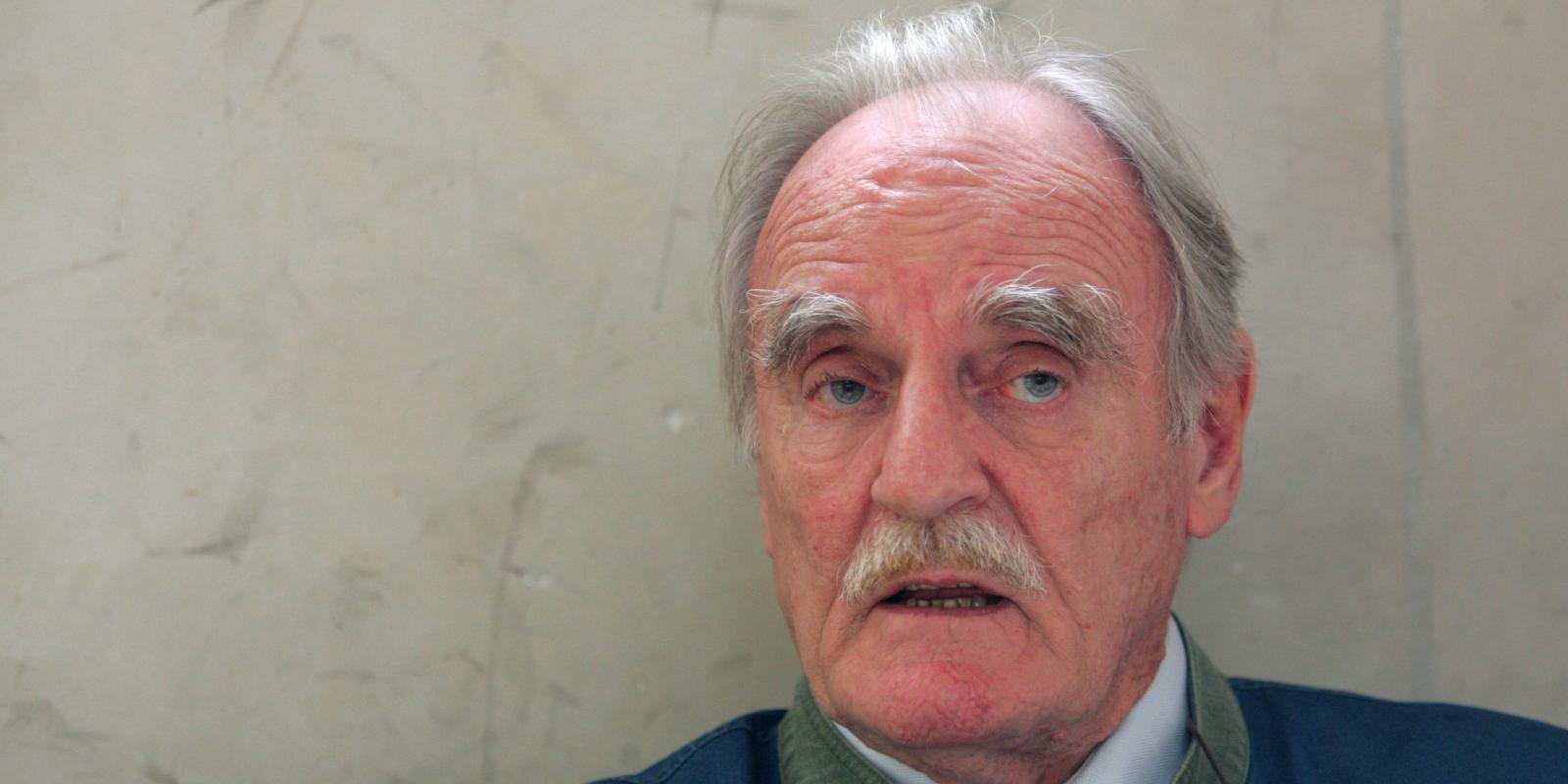An Obituary to Bury a Reputation
by Phyllis Chesler

Jean Raspail
From now on, in our era of BLM, statue toppling, and no-go zones, conservatives—no matter how distinguished or brilliant they may be, had better not die—for if they do, they risk being insulted in their Obituaries, at least in the pages of the New York Times.
Today, the Gray Lady ran Jean Raspail’s 1,055 word obituary in which descriptors meant to be disparaging were used no less than 18 times, beginning with the header which reads: Jean Raspail, 94, Writer Cited by Far Right, Dies. The neutral paragraphs comprise a mere 155 words which note that Raspail received the “Academie Francaise grand prize in 1981 and its grand prize for literature, for his body of work, in 2003.”
The Academie Francaise? No matter. The NYT focuses only on one book and spends 900 words in which to demean and insult its author, to warn unsuspecting readers away, and to paint a big fat bullseye on the cover of The Camp of the Saints. In our time, it’s Open Season on anyone seen reading this book or assigning it in a class, or mentioning it in their own books. Raspail is meant to be disappeared from history.
Raspail wrote “dozens of travel books and fictional works” and yet the Obituary focuses only on his satiric, dystopian, hilarious, sarcastic, difficult, even painful to read, quite over-the-top, and yes, please allow me to say it—his brilliant, literary novel titled: The Camp of the Saints.
Shall we likewise pillory Jonathan Swift for his A Modest Proposal, a work in which he suggested selling the children of the poor to the rich—as food? Shall we forget all about Gulliver’s Travels and denounce Swift as a Monster?
A photo of Raspail’s book is accompanied by a caption: “Mr. Raspail dehumanized immigrants in his 1973 book.” The piece describes Raspail’s followers as “white supremacists, far-right political figures;” worse yet, as one “member of the Trump administration.” In addition, “many conservatives” attended his funeral; his readers were “far right,” his book spawned or influenced today’s “white supremacists”—and led to the shootings at two mosques, one in New Zealand, one in Texas.
Wearily, I say unto you: Islam is a religion, not a color. Muslims come in all races. Try telling this to one of our contemporary hotheads.
In case you still don’t know what Raspail represents, the obituary goes on to describe Raspail as one of the “last members of the old reactionary right” in France. One of President Trumps advisers had “written approvingly of the novel in an email (!) to an editor at the right wing website Breitbart.” Can’t be clearer than this.
But, in case you are still unsure of whose reputation must be shamed, cancelled, and toppled, his novel has been called a “racist novel.” Raspail insisted that he was not a “racist,” but he also said that he would not change a single line in The Camp of the Saints, and “described himself as ‘right wing, even right-right-wing.’” The Obituary continues along in this vein. The novel is a “racist diatribe.”
In 2015, Raspail had a book signing at a Parisian book shop that “promotes conservative writers.” Raspail is of “white European descent, a term often used in far-right circles.” The inference here is that Raspail and his single book are to be viewed as personally responsible for European colonialism, imperialism, and racism. Raspail predicted that the “‘white race’ would be overwhelmed in the 2040s or 2050s.” Finally, on the day of his funeral, Marine Le Pen, “the leader of the far-right party… urged her Twitter followers to read the book, or to read it again.”
I have never seen a similar Obit for a far left-wing author in the NYT. Have you?
Guess what? The Times sure knows who to pick to perform their hatchet jobs. In November of 2019, Elian Peltier, together with Nicholas Kulish, demonized Raspail in their pages; today, Peltier has repeated much of what he previously wrote. At least it was not an Obit.
By the way: I understand how people of color must have felt day after day seeing the deeds and the deaths of mainly white folk memorialized everywhere, and I welcome more faces of color, yes, even in the pages of the NYT. And yet, I fear that an “ill wind blows” across our land, that this chapter in our history may end badly, but not before far too many people die—either of the Wuhan Virus, or are killed by guns or knives, or by the most brutal poverty, hate, and intolerance.